Note from the amanuensis: I wrote this movie review on November 28, 2001, shortly after I had seen the then just-released Harry Potter and the Sorcerer's Stone.Ron Weasley and the Chess Knight of Doom
Almost a decade later, having just seen Harry Potter and the Deathly Hallows: Part 1, I am glad to see that Daniel Radcliffe and his colleagues Rupert Grint and Emma Watson have all become mature young actors, able to sustain an intense interpersonal drama with only minimal support from established adult actors or special effects. It's good to see such artistic growth in the midst of a megabucks Hollywood franchise.
I've not revised my original review, though I might have done so given this current movie. Having watched the original and its sequels several times, now, I have a better opinion of it than I did in 2001.
Please understand me.
Though I’m not an uncritical Harry Potter fan, I genuinely enjoy and admire J.K. Rowling’s books, and it was great fun to initiate my sweetie into that world by taking him to see director Chris Columbus' new movie. This is indeed a film to share with friends and loved ones.
Nonetheless, as one of those older critics who grew up on Spin and Marty television adventures and remembers when cinema special effects were mostly done with lighting, I confess that my boyish heart was disappointed.
Like many bookworms, I’ve always believed in the magic of nerdy kids who transcend bullying and self-doubt to save the universe. I wanted to see it played out once more with the best FX Hollywood could buy. Unfortunately that’s almost all I got. Great FX, but no genuine, struggling kid who conquers.
In the books, Harry repeatedly stumbles with misgivings. The gap he sees between his self-image and the hero expectations placed upon him by his pedigree seems so great. As a true hero does, though, again and again Harry pushes past his fear to attempt what he is actually capable of…and succeeds. But not without pain.
Not knocking young actor Daniel Radcliffe, but this movie Harry always seems to have read ahead in the script. Even when he’s portrayed as grieving his lost parents before the Mirror of Erised, it’s as if he knows things will all work out.
So there I am at the theater, anyway, relishing the artful setting of the stage in the first half of the film. I’m entranced as we move from Muggleland into the Dickensian streets and shops I remember lovingly from boyhood fantasy. As the ramparts of Hogworts first rise from the torchlit lake, I am almost in tears at the joy of coming home. And then….
And then it all turns into an action movie.
Fine old actors are squeezed into character roles to sketch out a plot in cartoon. Short shrift is made of the classroom scenes and the interpersonal struggles of faculty and students, all of which were so central in the book for teaching Harry—and the reader—the differences between magic as a tool for service and magic as power.
There’s an almost pedestrian Star Wars rip-off quidditch match, some monsters, some stock humor and sentimentality, a crisis and an obligatory, flame-encircled showdown with a stand-in villain.
Rowling’s superb surprise ending, so carefully constructed in the book, comes almost as an afterthought here. Her shrewdly plotted moral conflicts seem lost on these filmmakers.
The deepest art in Rowling's writing comes in her motivating of characters. They are not two-dimensional role-playing game figures.
Professor Snape, for all his lusting after the Defense Against the Dark Arts professorship, is discovered at the last to have been stubbornly loyal to his school and headmaster. Conversely, Professor Quirrell, who does hold that chair, is portrayed as a full-fledged personality caught—and eventually lost—in the terrible ambivalence such a responsibility always poses for real human beings.
For entertainment's sake, Alan Rickman does give us an ominous movie Snape. He seems to long for a richer drama to star in, stopping every scene he’s in with a well-crafted glance or gesture or, simply, with a line delivery full of Tim Curryesque antici…pation. Yet he is nearly forgotten once he's served his purpose of dramatic misdirection.
Meanwhile, poor Ian Hart, as Quirrell, is never allowed to be much more than a bit player until the showdown with Harry. Even then, we are almost forced to see him as an innocent victim of He-Who-Must-Not-Be-Named, not as a soul who strove and failed.
Given all these disappointments, where do I find any redemption in Hollywood’s Sorcerer’s Stone?
In Ron Weasley, played with naïve honesty by newcomer Rupert Grint. From his first appearance on screen he captured my attention. He is wholly present in whatever happens. With no halo of expected heroism, with no inner sense of giftedness or promise, he nonetheless perseveres through every humbling challenge.
And, in the classic sense of the narrative hero, it is Ron Weasley—not Harry—whom we see, during the pivotal wizard chess game, undergoing moral transformation and embracing the sacrifice which makes “saving the universe” possible.
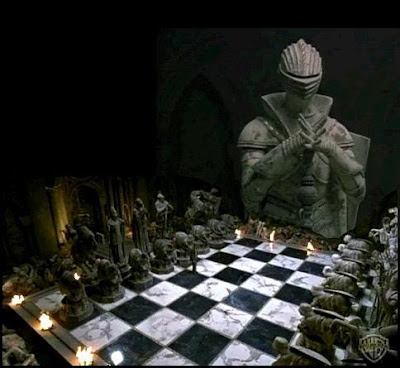
Perhaps this switch is an unintended blessing from Sorcerer’s Stone’s filmmakers. Few of us in the audience are stars in our own shows. We are mostly people who stumble along, doing our best, without special gifts or pedigrees, to be honest and loyal and—when circumstances cannot be avoided—courageous.
I liked the Harry Potter of this Hollywood version well enough, and I don’t resent his acclaim. I greatly enjoyed the rich visualization of Hogworts and its denizens.
Yet the spark I came away with, the one which still keeps me going back in Muggleland, is Ron Weasley. He is the boy I admire and hope to emulate.
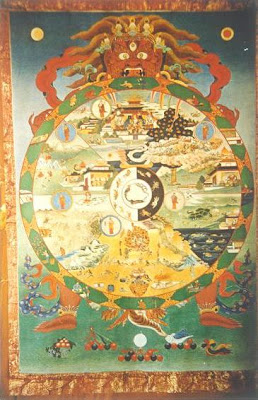

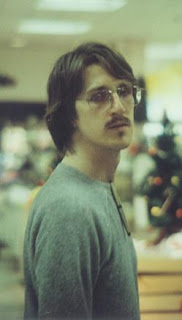




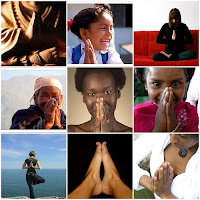


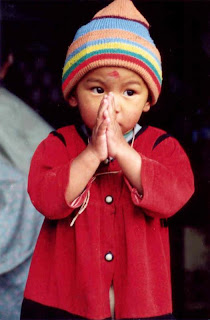

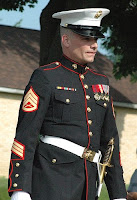



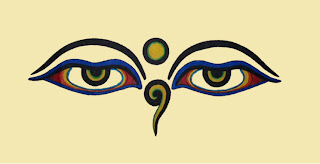
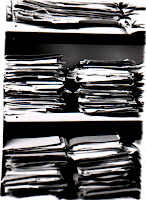

![Hecate [unattributed] Hecate [unattributed]](https://blogger.googleusercontent.com/img/b/R29vZ2xl/AVvXsEhiXW4o_2IbgekTWII_HwgbLaLH1r88Tnn-_qybmd4ArTYMADUyx3Gyhc2fUosBRsKGDMpfls8GRFFnB030BbE-DKZVnbQ8eNZ_ZF4Ou70N8eA6YNolCImqRQgt5POyDJZQ-cLoPfAlNo4/s320/hecate.jpg)

